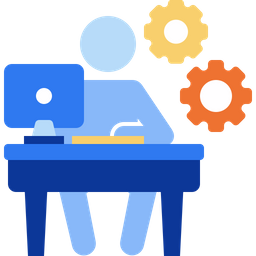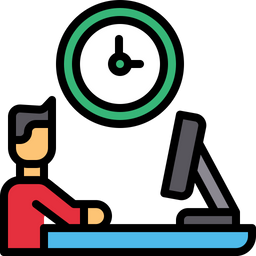
Smarter Working Initiative: Revolutionizing Productivity and Well-being in the Modern Workplace
The concept of smarter working has been transforming the landscape of modern employment, aiming to redefine the standards of efficiency while maintaining a harmonious balance between professional responsibilities and personal life. Smarter working goes beyond the conventional ‘work hard’ mantra by promoting ‘work smarter’ approaches that prioritize mental health, productivity, and work-life balance. By adopting smarter working principles, individuals and organizations can revolutionize how tasks are completed, ultimately creating a work environment that is not only productive but also supportive of each team member’s well-being. One of such principles is to addressing essay writers at essayhub.com as well. This initiative encourages the adoption of strategies that minimize time spent on low-value repetitive tasks, enabling employees to focus more on meaningful projects that lead to business growth and personal fulfillment.

Trusted By
25506
workers
The Fundamentals of Smart Working: Principles and Practices
At the core of smart working are principles that encourage working smarter, not harder. This approach involves identifying the most critical tasks and applying focused efforts to achieve them efficiently and even to ask someone to write my assignment for me. Smart working principles advocate for leveraging technology to streamline daily tasks and eliminate unnecessary repetitive tasks that can consume valuable hours of the workweek. By fostering a culture of continuous improvement and encouraging collaborative communities within the workplace, smart working aims to enhance productivity while ensuring that employees can maintain a healthy balance between their work and personal life. Employees are encouraged to create a to-do list that prioritizes daily tasks, focusing on completing one task at a time with full attention, leading to higher quality outcomes and a more satisfying work experience.
Our goal is to have business leaders across the globe sign up to the Smarter Working Initiative so their employees can work flexibly, from any location, for just one day. The Smarter Working Initiative will take place on the first official day of summer holidays for schools in the UK. Employees are encouraged to create a to-do list that prioritizes daily tasks, focusing on completing one task at a time with full attention, leading to higher quality outcomes and a more satisfying work experience.

Implementing Smarter Working Principles for Enhanced Productivity
Implementing smarter working principles within an organization requires a shift from traditional working methods towards more flexible working arrangements. By allowing team members to have control over their schedules and the location from which they work, companies can foster an environment of trust and empowerment. This flexible working approach not only supports work-life balance but also enables employees to work during hours when they feel most productive. Additionally, smarter working involves setting clear objectives and providing the tools and technology needed to complete tasks effectively and within a reasonable timeframe. Encouraging employees to break down projects into manageable parts and tackle one task at a time can significantly reduce feelings of being overwhelmed and improve overall task completion rates. Similarly, a promo code for essay pro is highly beneficial for businesses or professionals involved in the Smarter Working Initiative. This discount makes it more cost-effective to develop detailed essays or white papers that explore the efficacy of smarter working strategies, discussing how such initiatives improve productivity, employee satisfaction, and workplace flexibility.

Strategies to Complete Tasks More Effectively with Smarter Working
To complete tasks more effectively, smarter working strategies emphasize the importance of prioritization and focus. Employees should spend a few seconds each morning organizing their to-do list, separating urgent and important tasks from those that can wait. Utilizing technology such as project management software can help keep track of progress and deadlines, ensuring that nothing falls through the cracks. Additionally, smarter working suggests eliminating multitasking in favor of concentrating on a single task with complete focus, leading to higher quality work and greater satisfaction. By dedicating specific times for checking emails and attending meetings, employees can minimize distractions and allocate uninterrupted periods to work on significant projects. Taking advantage of available resources, such as an essay service promo code, can also streamline work processes and improve efficiency.

Balancing Professional Demands and Personal Life: A Smarter Approach
Achieving a work-life balance is a crucial component of smarter working. This balance is essential for maintaining mental health and ensuring that employees do not feel overwhelmed by their professional demands. Smarter working encourages individuals to clearly delineate between work time and personal time, setting boundaries to prevent work from encroaching on their personal life. Flexible working hours and the option to work remotely can contribute significantly to achieving this balance, allowing employees to accommodate family commitments and personal activities. Furthermore, organizations should promote a culture that values time off, recognizing that rest and rejuvenation are vital for sustained productivity and creativity.
Success Stories: Companies Excelling with the Smarter Working Initiative
Many companies have successfully implemented the smarter working initiative, witnessing remarkable improvements in productivity, employee satisfaction, and overall business performance. These success stories often highlight how adopting flexible working practices, investing in technology, and fostering a supportive team environment can lead to significant benefits for both the organization and its employees. Examples of companies that have embraced smarter working principles include tech giants, creative agencies, and small businesses, all of which have reported increased efficiency, better employee morale, and greater innovation as a result of these changes.


Overcoming Challenges: Tips for Transitioning to Smarter Working Methods
Transitioning to smarter working methods can present challenges, particularly for businesses accustomed to traditional work environments. To overcome these obstacles, companies should start by clearly communicating the benefits of smarter working to their teams and providing training on new tools and practices. It’s important to set realistic goals and allow time for adjustment, offering support and resources to help employees adapt to new ways of working. Encouraging feedback and open dialogue can help identify issues early on and allow for continuous improvement in implementing smarter working strategies.

The Future of Work: Predictions and Trends in Smarter Working
Looking ahead, the future of work seems increasingly aligned with the principles of smarter working. Trends indicate a continued move towards more flexible, technology-driven work environments that prioritize employee well-being and productivity. As businesses and employees alike recognize the benefits of working smart, we can expect to see further innovations in workplace practices, tools, and policies that support the smarter working model. Collaborative communities within workplaces are likely to strengthen as team-focused projects and communication platforms become increasingly prevalent. This shift towards more cooperative and flexible work environments aims to harness the collective intelligence and creativity of the workforce.
Creating a high-quality essay requires careful planning, thorough research, and a well-organized structure to present ideas clearly. Each step—from crafting a strong thesis to supporting arguments with relevant evidence – contributes to a cohesive and persuasive piece. For students who need extra support, paper writing services by WritePaper provide professional assistance, ensuring that essays are polished, well-structured, and meet all academic requirements